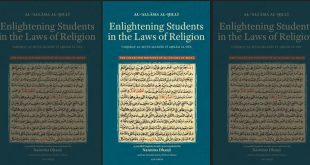The relationship of textual authority and individual reasoning forms the basic dynamic found in the work of classical Islamic jurists. The work of the mufti, who acts as one of the primary contributors to substantive law, embodies the encounter of authority and human reason in fiqh.
The relationship of textual authority and individual reasoning forms the basic dynamic found in the work of classical Islamic jurists. Using primary sources drawn from websites, blogs, and online message boards, I will explore the ways in which digital fiqh alters the prescriptive discourses of this basic interaction. I will argue that the Internet’s tendency to democratize knowledge and encourage the formation of “echo chamber” communities of like-minded individuals, combined with the lack of functional systems of shari`a in the modern nation-state, will create a new normative discourse of fiqh in which personal knowledge and moral reasoning outweigh classical constructions of text-based authority. In practical terms, popular Muslim conceptions of shari`a will become more individualistic, less likely to be derived from classical discourses, and more deeply rooted in personal experience and opinion. This process represents a reversion to the prescriptive discourses employed by the earliest Muslim jurists, who worked in sociopolitical circumstances surprisingly similar to those of contemporary digital Muslim communities.
Bibliographic Information
Title: Crowdsourcing shari`a: Digital Fiqh and Changing Discourses of Textual Authority, Individual Reason, and Social Coercion (PHD Thesis)
Author: Sarah Cowles Smith, B.A.
Language: English
Length: 88 pages
 Ijtihad Network Being Wise and Faithful Muslim in the Contemporary World
Ijtihad Network Being Wise and Faithful Muslim in the Contemporary World

